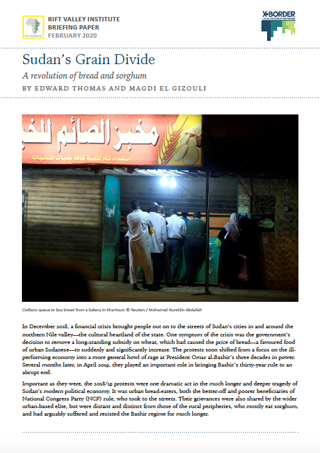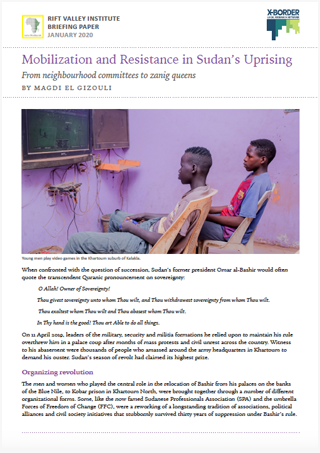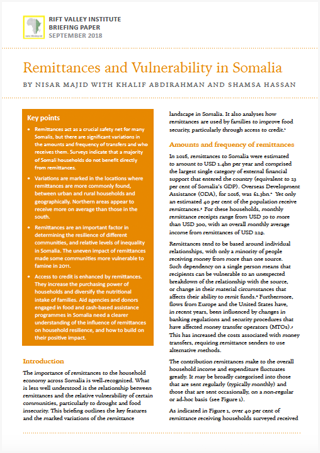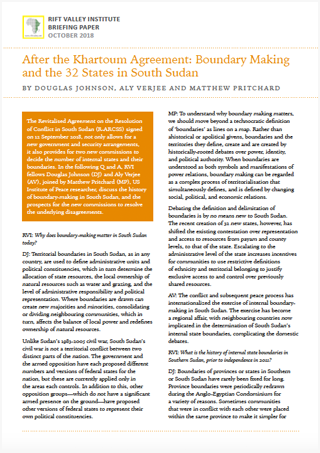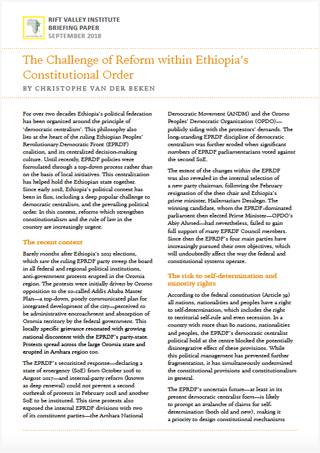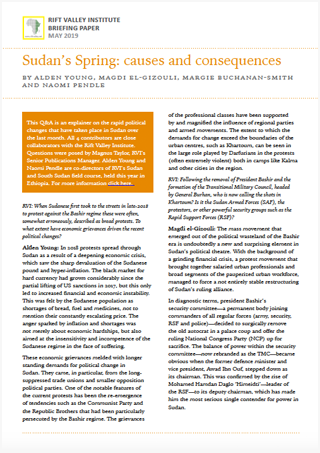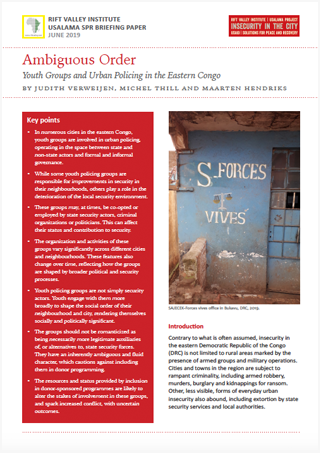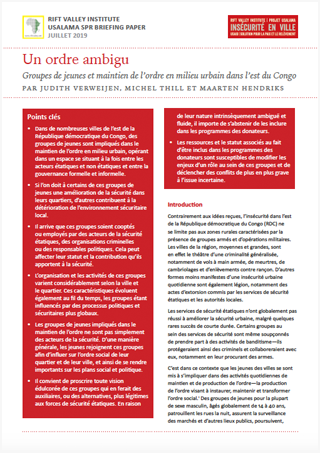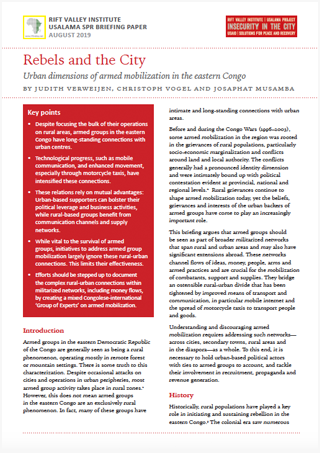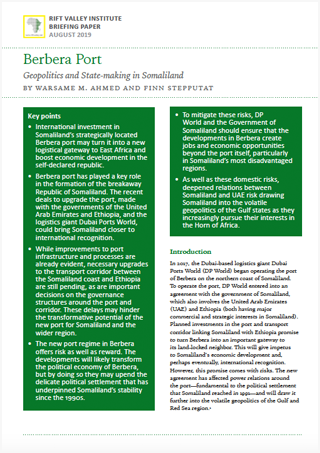This briefing unpacks the connected political and economic crisis that reached a climax in early 2019 through the contrasting but connected worlds of Sudan’s bread and sorghum eaters. Its conclusion presents the limited options available to the as…
RVI publishes books, research reports, research papers, briefings and meeting reports in a range of formats. Publications cover policy, research, arts, culture and local knowledge in the countries of eastern and central Africa. Research publications—books, reports and papers—are peer-reviewed. Some RVI publications are also available in French and/or Arabic.
The RVI is a signatory of the Budapest Open Access Initiative (2001); all publications are free for download in PDF format under Creative Commons licences. The views expressed in books and reports published by the RVI are those of the authors, not the Institute.
SEARCH
PUBLICATION TYPE
LANGUAGE
REGION
COUNTRY
RVI Fellow Magdi el-Gizouli’s briefing examines the forms of popular resistance and organization that emerged within Sudan’s uprising in 2018-19. He considers whether the new transitional government, which must balance the interests of Sudan’s different social groups, will…
The importance of remittances to the household economy across Somalia is well-recognized. What is less well understood is the relationship between remittances and the relative vulnerability of certain communities, particularly to drought and food insecurity. This briefing outlines the…
The Revitalised Agreement on the Resolution of Conflict in South Sudan (R-ARCSS) signed on 12 September 2018, not only allows for a new government and security arrangements, it also provides for two new commissions to decide the number of…
For over two decades Ethiopia’s political federation has been organized around the principle of ‘democratic centralism’. This philosophy also lies at the heart of the ruling Ethiopian Peoples’ Revolutionary Democratic Front (EPRDF) coalition, and its centralized decision-making culture. Until…
This Q&A is an explainer on the rapid political changes that have taken place in Sudan over the last month. All 4 contributors are close collaborators with the Rift Valley Institute. Questions were posed by Magnus Taylor, RVI’s Senior…
Key points In numerous cities in the eastern Congo, youth groups are involved in urban policing, operating in the space between state and non-state actors and formal and informal governance. While some youth policing groups are responsible for improvements…
Points clés Dans de nombreuses villes de l’est de la République démocratique du Congo, des groupes de jeunes sont impliqués dans le maintien de l’ordre en milieu urbain, opérant dans un espace se situant à la fois entre les…
Key Points Despite focusing the bulk of their operations on rural areas, armed groups in the eastern Congo have long-standing connections with urban centres. Technological progress, such as mobile communication, and enhanced movement, especially through motorcycle taxis, have intensified…
Key Points International investment in Somaliland’s strategically located Berbera port may turn it into a new logistical gateway to East Africa and boost economic development in the self-declared republic. Berbera port has played a key role in the formation…
Recent Publications

EWNET Writes: Writing Workshop Session I
December 18, 2025
The Ethiopian Women Researchers Network (EWNET) inaugural writing workshop series aims to not only provide women researchers with uninterrupted time for their scholarly projects, but also build a supportive academic community. The first session, entitled ‘EWNET Writes: Writing Workshop Session

SSC-Khaatumo: Perspectives on the significance and implications of its formation
December 12, 2025
On 15 April 2025, during a visit to the city of Las Anod in Sool, Prime Minister Hassan Abdi Barre officially declared the federal government’s recognition of SSC-Khaatumo (SSC-K hereafter) as a federal member state, marking an important milestone in

Aid and Conflict Sensitivity in Contemporary Ethiopia
November 17, 2025
This study assesses conflict sensitivity practices among humanitarian, development and peacebuilding (HDP) actors in Ethiopia. It seeks to raise awareness and foster a deeper understanding of the evolving aid landscape in the country while analysing the challenges that affect conflict-sensitive

